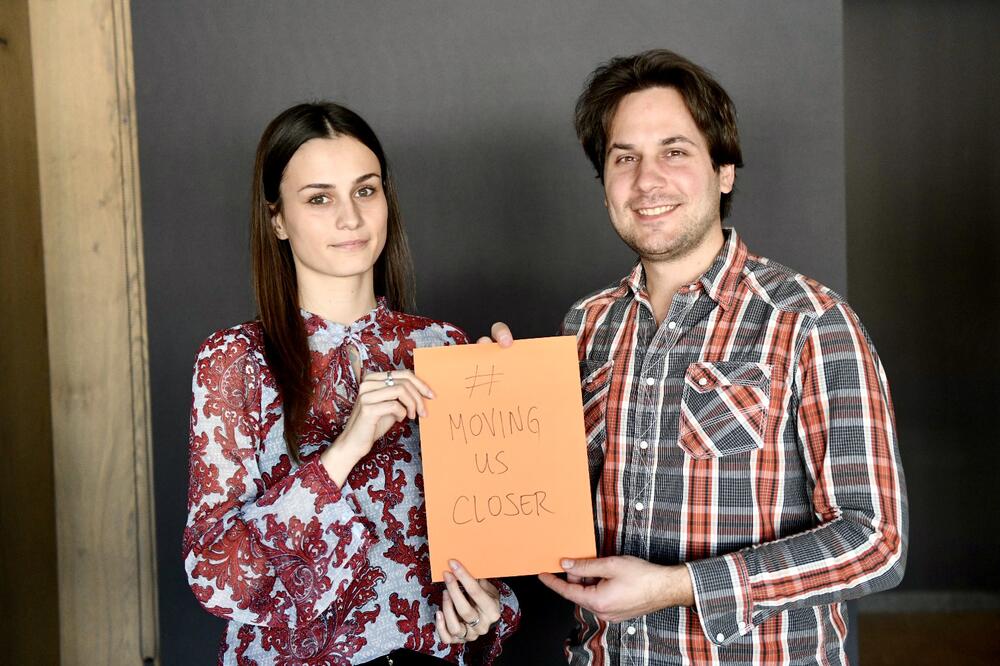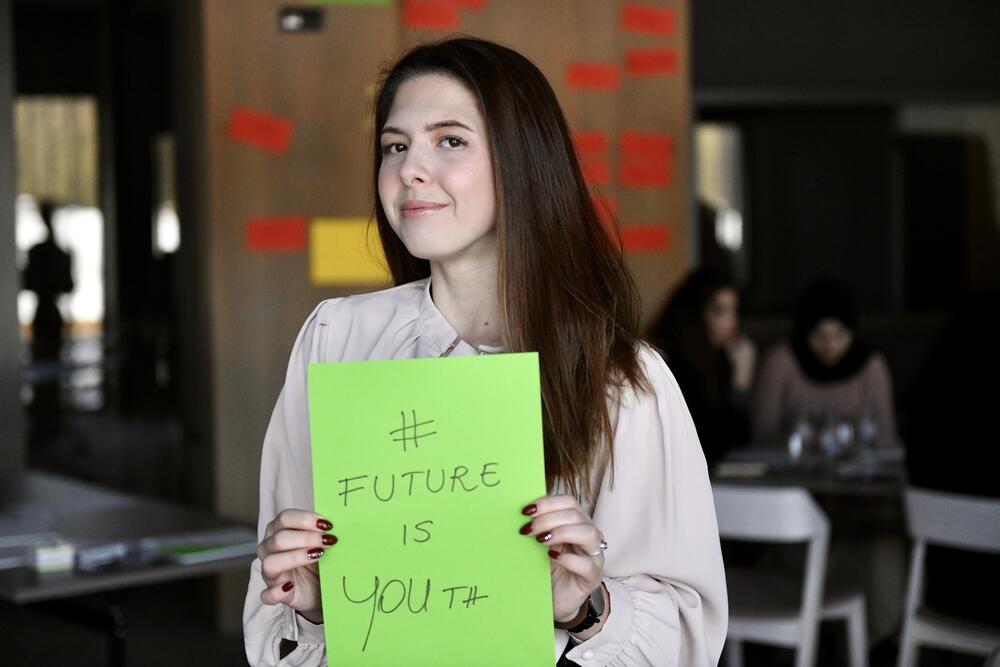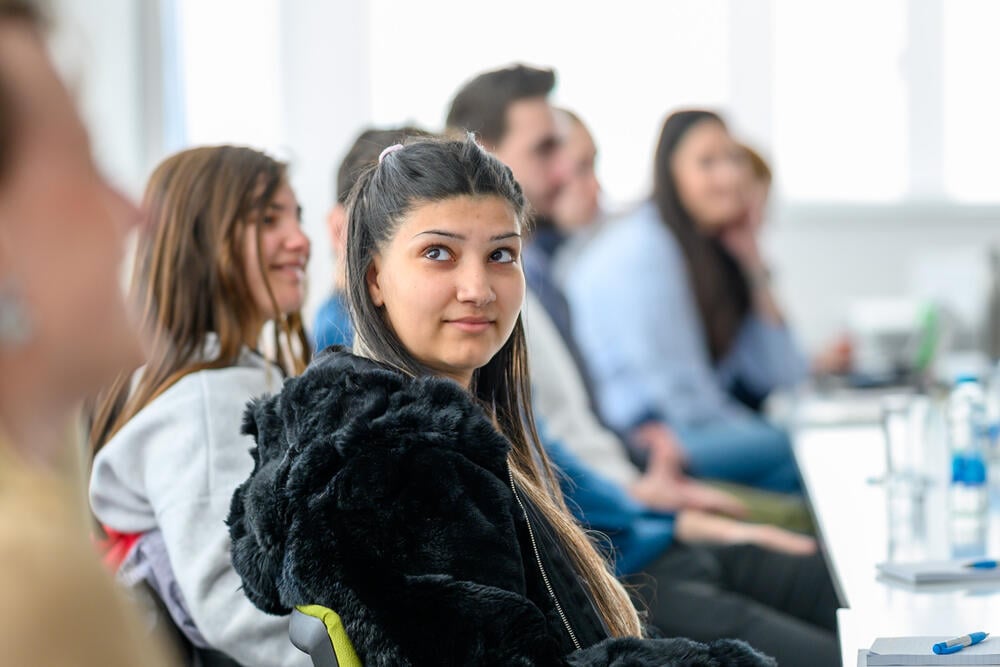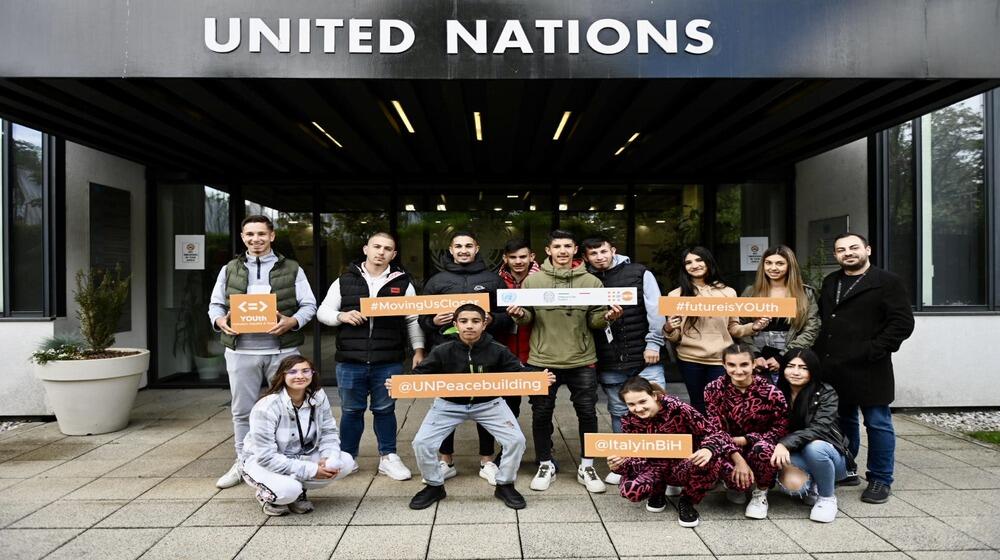In Bosnia and Herzegovina, the Y-Peer network is making significant strides in fostering peace and intercultural dialogue among youth. This dynamic network empowers young people aged 18 to 30 to become ambassadors of peace and social cohesion. With a robust structure that includes various stakeholders such as entity ministries, non-governmental organizations, media, and IT companies, Y-Peer aims to address conflict drivers like hate speech, divisive narratives, and negative gender norms.
Despite the declining popularity of peace camps in Bosnia and Herzegovina, which were once vital platforms for youth dialogue on conflict resolution and building lasting friendships across ethnic lines, discussions on peace remain central, especially among youth taking increasingly independent initiatives. Programs like Y-Peer have seized this opportunity by offering new avenues for youth engagement and peacebuilding.

Aleksandar-Rade Ćorović (30), from Banja Luka, describes how the project enabled him to connect his previous experiences and knowledge with new skills acquired through UN training for youth peacebuilders. "Through various workshops I led, I had the opportunity to test and apply my skills practically, which helped me realize that I can be a good trainer who is attentive and understanding towards youth", he explains, highlighting the excitement and challenging impact Y-Peer had on him, stating: "At the end of each day, I felt very enthusiastic and positive about the whole program and the opportunity that was given to me."
Emin Fafulić (27), from Kakanj, shares a similar sentiment, emphasizing the project's importance in connecting young people from diverse backgrounds to collaborate on peacebuilding. "This project was extremely important because it allowed me to connect with young people from different backgrounds and work together on building peace. It also gave me the opportunity to work with young people from the Roma population on peacebuilding in our local community", says Emin. He participated as a facilitator and educator, leading workshops and trainings for youth, and organizing various events and activities during these trainings. "Y-Peer significantly increased my self-confidence, expanded my knowledge of social issues, and helped me develop leadership skills", he adds.

Neira Zulić (24), from Bihać, recalls her personal experience, noting how it was an absolute pleasure to meet and collaborate with peers. "The project not only promoted social cohesion and intercultural dialogue but also profoundly changed my perspective on societal issues. It connected me with like-minded individuals, enriching my life in ways I hadn't anticipated", shares she. Through this experience, her communication and mediation skills, essential in any field but particularly crucial in conflict prevention and social cohesion promotion, significantly improved. "I was genuinely surprised and inspired by the number of young people in small towns who wanted to become ambassadors for peacebuilding", she says. This experience empowered her both personally and professionally, ultimately helping her secure a job in an international organization.
The cities involved in the Y-Peer program include Lukavac, Tuzla, Milići, Banja Luka, Bihać, Bijeljina, Bosanski Petrovac, Brčko, Cazin, Istočno Sarajevo, Kakanj, Lukavac, Mostar, Omarska, Prnjavor, Sarajevo, Teslić, and Živinice. The engagement and enthusiasm seen in these cities were truly inspiring, with young people demonstrating a strong commitment to promoting peace and understanding. Each city brought its unique perspective and energy, contributing to a vibrant and dynamic network of youth dedicated to positive change.
Moreover, the project has shown great success through its integration into educational curricula at institutions such as the University of Bihać and the Faculty of Pedagogy in Banja Luka. Subjects like pedagogy, special pedagogy, socio-emotional learning, and developmental psychology now incorporate Y-Peer methodologies, ensuring their lasting impact in the educational system.
Aleksandar-Rade Ćorović from Banja Luka applied the knowledge and skills acquired during Y-Peer training through leading workshops and engaging in the NGO sector. "These activities helped me present and test my abilities, resulting in increased self-confidence and motivation for further work with youth. I also learned how to better organize and structure workshops and communicate more effectively with participants", he says.
Emin Fafulić describes the concrete results of his participation: "I gained skills in facilitation, public speaking, event organization, and communication. I also learned how to work in a team and solve problems efficiently". Emin's efforts in the Roma community have led to greater inclusion and participation, especially among young Roma women.

The Y-Peer network in Bosnia and Herzegovina is a testament to the power of young people in driving social change. Through structured training, innovative activities, and a robust support system, Y-Peer empowers a new generation of peacebuilders to create a more harmonious and inclusive society. The work across BiH stands as a brilliant example of what can be achieved when young people are given the tools and support they need to lead.
The regional United Nations initiative ‘Youth 4 Inclusion, Equality & Trust’ empowers young people to engage in constructive narratives, strengthen intercultural dialogue, inclusion, gender equality and create mutual understanding and trust in the region. The initiative is financially supported by the UN Secretary-General’s Peacebuilding Fund.


